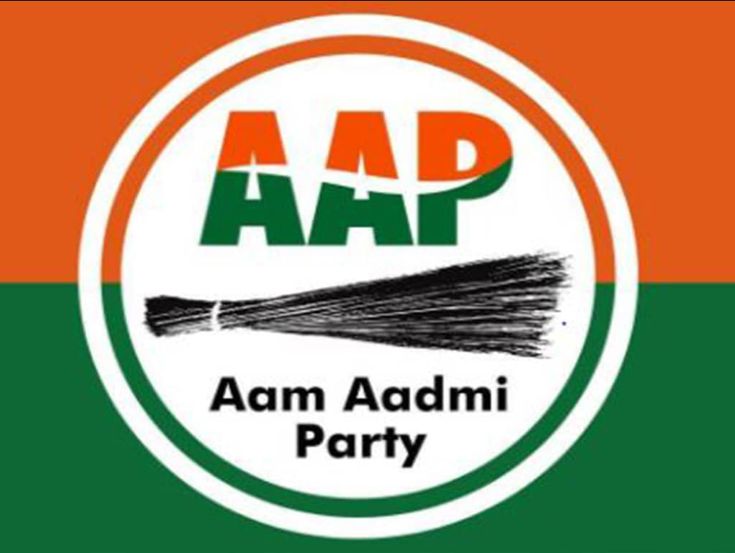Aam Aadmi Party (AAP): A Complete Overview and Its Impact on Society
Introduction
The Aam Aadmi Party (AAP) is a political force that has brought a wave of transformation to Indian politics. Founded with the promise of transparency and good governance, AAP has significantly impacted Indian society, especially in the National Capital Territory (NCT) of Delhi. This article explores the history, achievements, and influence of AAP in India.
The Aam Aadmi Party (AAP) is an Indian political party founded in 2012 with a focus on anti-corruption, good governance, and pro-people policies. The party was born out of the India Against Corruption (IAC) movement led by activist Anna Hazare, with Arvind Kejriwal playing a key role in its formation. AAP’s ideology centers around transparency, accountability, and grassroots democracy.
Key Facts about Aam Aadmi Party:
- Founded: November 26, 2012.
- Founder & National Convenor: Arvind Kejriwal.
- Party Symbol: Broom (Jhadu), symbolizing a commitment to “clean” politics.
- Core Ideology:
- Anti-corruption.
- Welfare-driven governance (education, healthcare, and basic services).
- Direct participation of citizens in decision-making (Swaraj or decentralization).
Electoral Successes:
1. Delhi:
Aam Aadmi Party first came to power in 2013, forming a minority government, but Arvind Kejriwal resigned after 49 days due to obstacles in passing the Jan Lokpal Bill. However, the party made a strong comeback:
- 2015 Delhi Assembly Elections: Won 67 out of 70 seats, securing a massive mandate.
- 2020 Delhi Assembly Elections: Retained power with 62 out of 70 seats, focusing on education, healthcare, and public utilities.
2. Punjab:
Aam Aadmi Party expanded its influence outside Delhi and achieved a landmark victory in the 2022 Punjab Assembly elections, winning 92 out of 117 seats, forming the government with Bhagwant Mann as Chief Minister.
3. Other States:
The party has contested elections in states like Gujarat, Goa, Haryana, and Himachal Pradesh, making inroads but facing stiff competition from national parties like BJP and Congress.
Major Policies and Achievements:
- Education:
- Revamped government schools with improved infrastructure, “Happiness Curriculum,” and skill-based learning.
- “Delhi Model” of education praised for better results and facilities.
- Healthcare:
- Introduction of Mohalla Clinics, providing free primary healthcare at the neighborhood level.
- Revamping government hospitals with better facilities.
- Water & Electricity:
- Free 200 units of electricity per household in Delhi.
- Subsidized water supply up to 20,000 liters per month.
- Public Transport:
- Free bus travel for women in Delhi.
- Expansion of metro connectivity and electric buses.
- Anti-Corruption Measures:
- Set up an anti-corruption helpline to report bribery and misconduct.
- Promoted transparency through doorstep delivery of public services.
Challenges and Criticism:
Despite its successes, AAP has faced several challenges and criticisms, including:
- Allegations of populism: Critics argue that free schemes could strain the economy in the long run.
- Internal conflicts: Several founding members like Yogendra Yadav and Prashant Bhushan left due to differences in leadership style.
- Legal issues: Accusations of mismanagement and corruption by opposition parties, especially in liquor policy and funding sources.
- Limited national presence: Despite efforts, AAP has struggled to make significant inroads in many states beyond Delhi and Punjab.
Current Status and Future Plans:
Aam Aadmi Party aims to expand its footprint across India by contesting in states such as Madhya Pradesh, Rajasthan, and Gujarat, positioning itself as an alternative to both the Bharatiya Janata Party (BJP) and the Indian National Congress (INC). The party is also eyeing a bigger role in national politics for the 2024 Lok Sabha elections, focusing on governance reforms and public welfare.
History and Background
Aam Aadmi Party was founded in 2012 by Arvind Kejriwal and a group of social activists who were part of the India Against Corruption movement. Some key milestones in AAP’s journey include:
- 2012: Formation of the party with the mission of eradicating corruption.
- 2013: First electoral victory in Delhi Assembly elections.
- 2015: Historic win with 67 out of 70 seats in Delhi.
- 2020: Successful re-election with an emphasis on development.
Political Significance
Aam Aadmi Party has carved a niche for itself in Indian politics with its emphasis on good governance and welfare schemes. Some of the key contributions include:
- Governance Model: Introduction of people-centric policies and efficient public services.
- Transparency: Commitment to eradicating corruption through public participation.
- Expansion Beyond Delhi: Contesting elections in states like Punjab and Gujarat.
Daily Life and Its Impact
Aam Aadmi Party policies have made a direct impact on the daily lives of citizens, focusing on key areas such as:
- Education: Revamping public schools with world-class facilities.
- Healthcare: Establishment of Mohalla Clinics offering free primary healthcare.
- Electricity and Water: Affordable and subsidized rates for residents.
- Public Transport: Free bus rides for women and improved transportation facilities.
Achievements and Contributions
Aam Aadmi Party has introduced several pioneering initiatives that have benefited millions of people, such as:
- Education Revolution:
- Focus on improving government schools with better infrastructure.
- Recruitment of qualified teachers and enhanced curriculum.
- Healthcare Improvements:
- Free healthcare services through Mohalla Clinics.
- Advanced facilities in government hospitals.
- Infrastructure Growth:
- Road development and beautification projects.
- Smart city initiatives to improve public amenities.
Importance of Aam Aadmi Party in Indian Society
Aam Aadmi Party emergence has brought about a paradigm shift in governance. Key aspects include:
- Promoting clean politics with citizen involvement.
- Encouraging other states to adopt similar welfare models.
- Setting benchmarks for efficient governance across India.
Observance and Popularity
AAP’s success story has inspired many and gained significant recognition:
- Public Support: A growing base of followers across various states.
- Recognition: International acclaim for governance models.
- Expansion: Winning elections in Punjab and contesting in other states.
Interesting Facts About Aam Aadmi Party
- AAP was formed after the Jan Lokpal movement.
- It is one of the fastest-growing political parties in India.
- AAP’s policies focus on grassroots governance and citizen engagement.
How Aam Aadmi Party Impacts Society
AAP’s impact can be seen in various aspects of society, including:
- Providing better public amenities and welfare schemes.
- Promoting honest politics and accountability.
- Empowering citizens through participatory governance.
FAQs About Aam Aadmi Party
Q1: What is AAP’s primary goal?
A: AAP aims to provide transparent governance and eliminate corruption.
Q2: What are AAP’s key achievements in Delhi?
A: Improvements in education, healthcare, and infrastructure.
Q3: Is AAP expanding beyond Delhi?
A: Yes, AAP has gained success in Punjab and is expanding in other states.
Wishing Aam Aadmi Party: How to Celebrate Its Achievements
Supporters can celebrate AAP’s contributions by:
- Advocating for good governance and transparency.
- Participating in public welfare initiatives.
- Encouraging ethical political practices.
Conclusion
Aam Aadmi Party has redefined Indian politics with its focus on clean governance, transparency, and public welfare. It continues to inspire hope and drive positive change in society.










